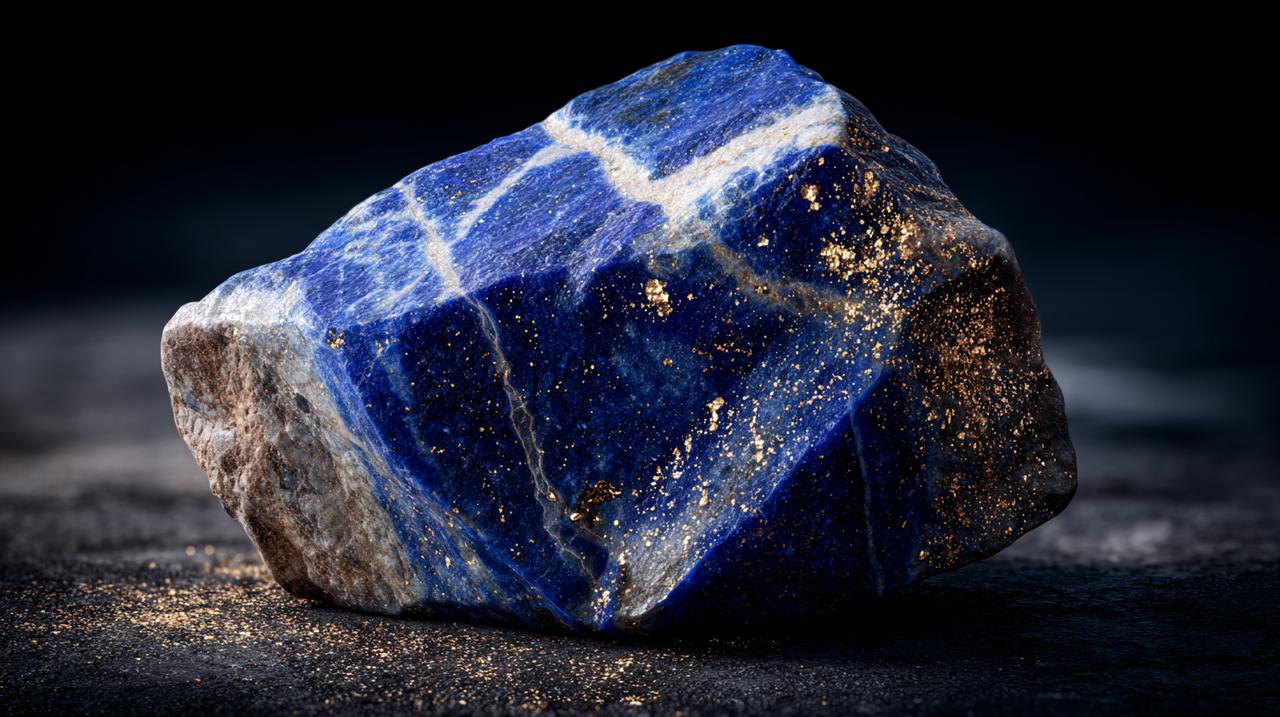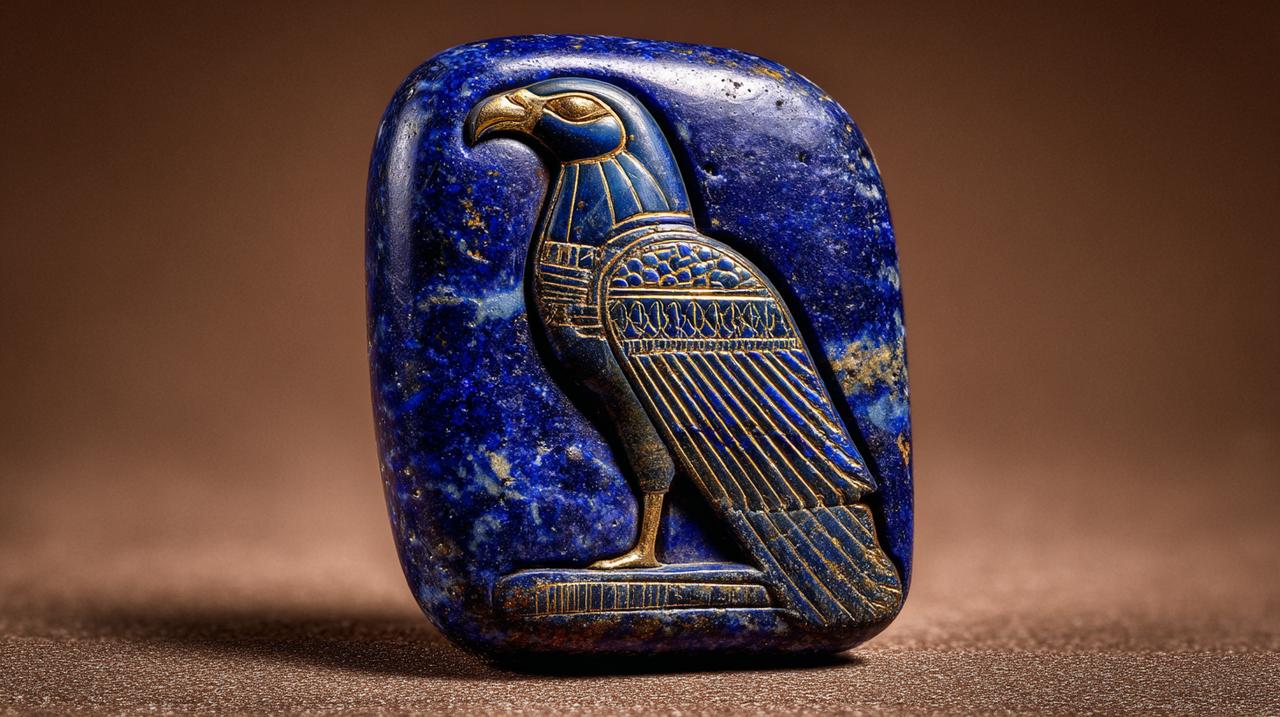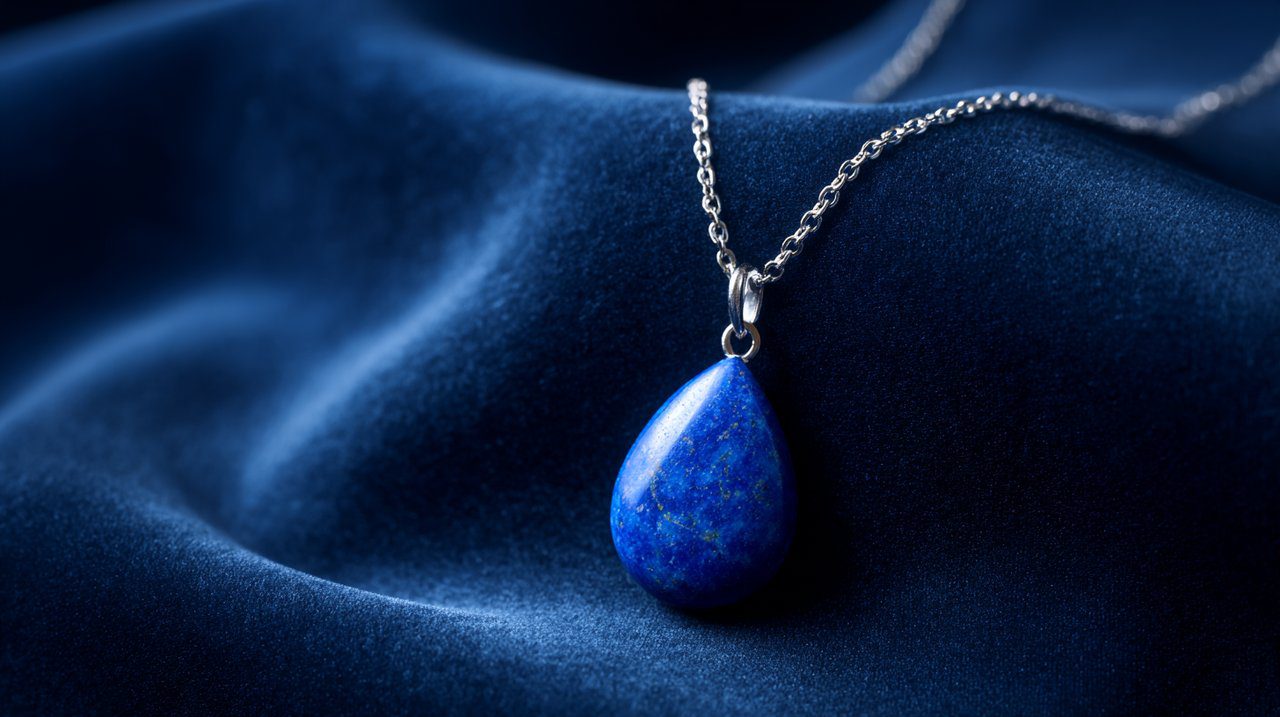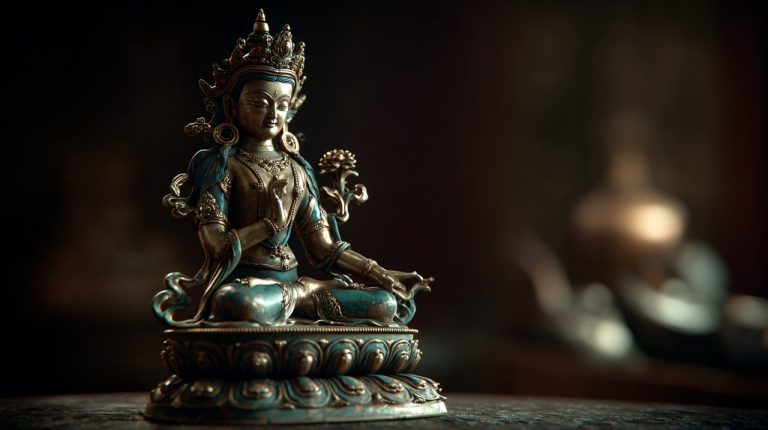Lapis Lazuli: The Sky Stone’s Enduring Legacy as a Gem
Imagine a stone that has witnessed the dawn of civilization, a deep blue hue that has adorned pharaohs and sparked the imagination of artists for thousands of years. That’s Lapis Lazuli for you – a truly captivating material woven into the fabric of human history and culture.
But a common question often surfaces: is Lapis Lazuli truly a gem? The answer, unequivocally, is yes. Its unique makeup, rich historical journey, and profound spiritual significance firmly establish its place among the world’s most cherished gemstones.
Sky Stone: Unpacking Lapis Lazuli’s Gemstone Identity
So, what exactly makes Lapis Lazuli a gemstone? This precious blue marvel certainly holds a distinguished place in the realm of fine materials, and its inherent qualities align perfectly with the criteria we use to define a true gem.
Defining a Gemstone: Where Lapis Lazuli Shines
Generally speaking, gemstones are valued for three key characteristics: their rarity, beauty, and durability. These qualities make them ideal for cutting, polishing, and ultimately, wearing as adornment.
Lapis Lazuli, without a doubt, gracefully fulfills all these requirements. Its distinct, captivating blue, its relative scarcity in nature, and its resilience with proper care firmly establish it as a legitimate and cherished gem.
A Celestial Blend: Lapis Lazuli’s Unique Composition
Here’s something fascinating: Lapis Lazuli isn’t a single mineral, but rather a metamorphic rock. Its signature deep blue comes primarily from the mineral lazurite.
What makes it truly special, though, is its blend of other elements. You’ll often find delicate white veins of calcite woven through it, along with sparkling, almost golden flecks of pyrite. This unique combination gives Lapis Lazuli an appearance that truly evokes a starry night sky, setting it apart in the world of `gemstone meanings`.

Across Time: Lapis Lazuli’s Royal Heritage and Cultural Resonance
Beyond its breathtaking physical beauty, Lapis Lazuli has played an truly extraordinary role throughout human history. It’s not just a geological formation; it’s a revered “heaven-sent stone” that connects us to ancient civilizations.
Ancient Civilizations’ Blue Gold: From Egypt to Mesopotamia
For ancient Egyptians, Lapis Lazuli was nothing short of a “sky stone,” a direct link between mortals and the divine. You’ll find it extensively used in pharaohs’ burial masks and amulets – think of the iconic golden mask of Tutankhamun, famously inlaid with this very stone.
Mesopotamian civilizations equally cherished Lapis. They incorporated it into seals, sculptures, and `protective jewelry`, seeing it as a powerful symbol of royalty and divine authority. These `ancient spiritual practices` truly imbued Lapis with unparalleled cultural depth and meaning.

A Canvas of Faith: Lapis Lazuli’s Symbolic Meaning in Art
Fast forward to the Middle Ages in Europe, and Lapis Lazuli took on another profound role. It was painstakingly ground into the incredibly precious ultramarine pigment, a color so vibrant and rare it was reserved for depicting the Virgin Mary’s robes, symbolizing divinity and purity.
This enduring use highlights a consistent theme: across diverse cultures and throughout history, Lapis Lazuli has consistently aligned with deep concepts like wisdom, truth, dignity, and spiritual insight.
“The deep blue of Lapis Lazuli is more than just a color; it carries humanity’s eternal yearning for the sky, the unknown, and the sacred.”
Resonance of Wisdom and Truth: Lapis Lazuli’s Spiritual Power
Even today, Lapis Lazuli holds a significant and cherished position in contemporary spiritual practices. It’s widely celebrated as one of the most potent `healing crystals` available.
Connecting to Your Higher Self: Throat and Third Eye Chakras
In the world of crystal healing, Lapis Lazuli is particularly associated with two vital energy centers: the throat and third eye chakras.
It’s widely believed to enhance intuition, insight, and inner wisdom, empowering you to articulate your thoughts with greater clarity. Many also feel that these `spiritual stone properties` actively open pathways to higher consciousness and a deeper sense of self-understanding.

A Bridge to Emotional Balance and Clear Communication
Beyond its connection to higher wisdom, Lapis Lazuli is also highly valued for its ability to foster emotional equilibrium. It’s thought to help reduce stress and anxiety, paving the way for a profound sense of inner peace.
Furthermore, it actively encourages honest and clear communication, which can be incredibly helpful in resolving conflicts and building deeper, more authentic relationships in your life.
Identifying and Protecting: Cherishing Your Lapis Lazuli
To own Lapis Lazuli is to hold a tangible piece of ancient, profound history. So, understanding how to properly identify and care for it is key to ensuring its beauty and unique energy endure for years to come.
How to Assess Lapis Lazuli Quality
When you’re looking for high-quality Lapis Lazuli, keep an eye out for a few key indicators. Ideally, it will display a uniform, deep blue color with minimal or even no white calcite streaks.
You’ll also want to see a moderate scattering of those characteristic golden pyrite flecks. As a general rule, the deeper and purer the blue hue, the higher the perceived value of the stone.
Daily Wear and Care Tips for Your Lapis Lazuli
Given its Mohs hardness of 5 to 5.5, Lapis Lazuli is relatively soft, so a little extra care goes a long way. Here are some essential tips to ensure your cherished stone maintains its luster and vitality:
- Protect from impacts and abrasives: Avoid wearing it during activities where it might get knocked or scratched.
- Keep away from chemicals and extreme heat: This includes household cleaners, perfumes, and sudden temperature changes.
- Clean gently: Use only a soft, damp cloth to wipe it clean. Harsh brushes or ultrasonic cleaners are a no-go.
- Consider occasional energy cleansing: Many believe that gentle methods like moonlight bathing can help refresh its spiritual energy.
So, there you have it. Lapis Lazuli, truly a gem infused with the deep blue of the cosmos and the sparkle of golden stars, holds an undeniable and well-deserved status in our world.
It not only graces us with its unique beauty but continues to illuminate our paths, offering wisdom and truth through its profound cultural heritage and potent spiritual energy. Whether you’re drawn to its history, its aesthetic, or its spiritual resonance, Lapis Lazuli remains a timeless and powerful stone. Discover more about `gemstone meanings` and the rich stories they tell, or simply appreciate the unique qualities of this incredible “sky stone” and its `healing crystals` energy.
💡 Frequently Asked Questions
Yes, Lapis Lazuli is unequivocally considered a true gemstone. It meets the key criteria of rarity, beauty, and durability, making it ideal for cutting, polishing, and wearing as adornment.
Lapis Lazuli is a metamorphic rock, not a single mineral. Its signature deep blue color comes primarily from lazurite, and it often includes delicate white veins of calcite and sparkling golden flecks of pyrite, giving it an appearance that evokes a starry night sky.
Lapis Lazuli has a rich history, revered by ancient civilizations like the Egyptians, who used it in pharaohs' burial masks (e.g., Tutankhamun's) as a 'sky stone.' Mesopotamian civilizations used it in seals and jewelry as a symbol of royalty. In the Middle Ages, it was ground into the precious ultramarine pigment for art.
Lapis Lazuli is consistently associated with wisdom, truth, dignity, and spiritual insight. In contemporary spiritual practices, it's linked to the throat and third eye chakras, believed to enhance intuition, insight, inner wisdom, clear communication, and emotional balance.
Lapis Lazuli is relatively soft (Mohs hardness of 5 to 5.5), so it requires careful handling. Avoid impacts, abrasives, chemicals, and extreme heat. Clean it gently with a soft, damp cloth, and do not use harsh brushes or ultrasonic cleaners.








